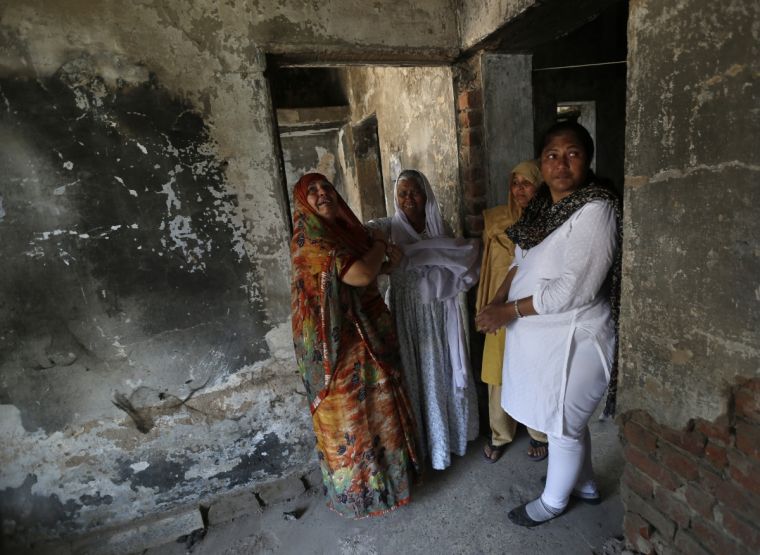Life sentences handed down after riots in India where Muslims were burned and hacked to death

Eleven people in India have been given life sentences after being convicted for a notorious attack on the Gulbarg Society, a Muslim residential area in Gujarat in 2002, in which at least 69 people were hacked and burned to death.
A further 13 people received shorter sentences of between seven and 10 years and 36 people were acquitted.
Former Congress MP Ehsan Jafri was among those killed in three days of riots, in which more than 1,000 people, mostly Muslims, died overall.
The violence was sparked by a fire on a train that killed 60 Hindu pilgrims.
The Gulbarg Society was a community of 30 bungalows and 10 blocks of flats in Ahmedabad. At the time, Narendra Modi, current Prime Minister of India, was chief minister of Gujarat. He was cleared of complicity in 2012.
The sentencing brings to an end a trial that has lasted seven years in front of four separate judges. The court in Ahmedabad was told the killings took place on the "darkest day in the history of civil society".
Even those given life sentences could win a reprieve however and be out of prison after serving much shorter sentence.
"They are not a menace to society, the accused can be reformed," the court was told, according to The Times of India.
The 11 people setnenced to life were Kailash Dobhi, Yogendra Shekhwat, Jayesh Jinger, Krishna Kala, Jayesh Parmar, Raju Tiwari, Naran Channelwala, Lakhansinh Chudasma, Bharat Teli, Bharat Rajput and Dinesh Sharma.
The lawyer for the victims, SM Vora, argued for the maximum punishment and called for those convicted to spend the rest of their lives behind bars.
Zakia Jafri, wife of Ehsan, said she was disappointed by the verdict.
"I was there when Ehsan Jafri was killed, it's not justice at all," she told journalists after the case.











